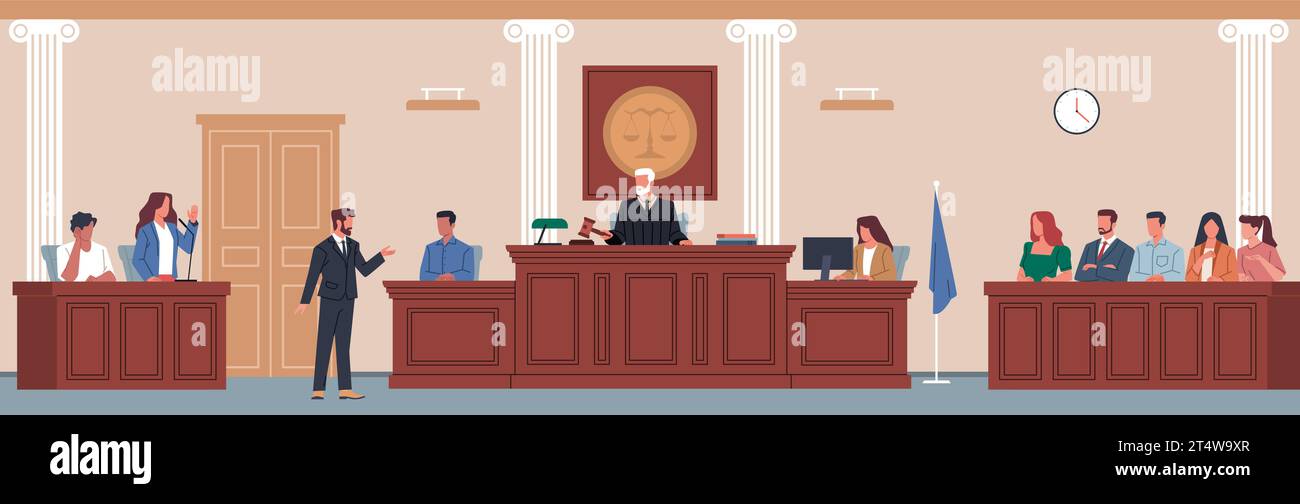Exactly How Trial Presentations Enhance Your Argument and Convince Jurors
Test presentations serve as a pivotal system for enhancing legal debates and persuading jurors. By incorporating visual aids, narrative frameworks, and emotional involvement, attorneys can produce a compelling instance that resonates on several degrees. The calculated use visuals not only clears up complex info but likewise captures jurors' interest better than words alone. The art of narration plays an equally critical duty in transforming accurate evidence into a compelling story, forming jurors' perceptions. Recognizing these elements can substantially affect test outcomes, raising the question of how each element adds to this intricate dynamic.

Importance of Visual Help
Visual aids play a critical duty in enhancing the efficiency of test presentations, as they can substantially enhance target market interaction and retention of information. In the context of a test, where jurors are charged with processing facility info, aesthetic aids serve to streamline and clarify key factors. Charts, charts, and pictures can convey data and principles that may otherwise bewilder or confuse jurors, permitting for a much more straightforward understanding of the proof presented.
Moreover, aesthetic aids help in keeping juror attention throughout the process. By damaging the monotony of spoken testimony, these devices can punctuate vital arguments, making them extra unforgettable. Effective aesthetic aids can additionally stimulate psychological reactions, which can be critical in persuading jurors to straighten with the speaker's narrative.

Crafting Engaging Narratives
A compelling narrative is necessary in trial presentations, as it functions as the foundation of efficient persuasion. It allows attorneys to weave together facts, proof, and emotional components into a systematic story that reverberates with jurors. This narrative structure allows jurors to understand the intricacies of the situation while guiding them via the attorney's disagreement.
To craft a compelling story, lawyers should focus on clearness and coherence. Furthermore, the use of brilliant summaries can develop mental images that assist jurors envision the events, making the narrative much more unforgettable.
Moreover, integrating crucial themes throughout the presentation reinforces the core message and aids in retention - trial presentations. The story must not just convey details yet also evoke a feeling of justice, highlighting the risks entailed. Eventually, a sound narrative fosters a connection between the jurors and the instance, placing the lawyer's disagreement as both qualified and engaging, thereby raising the chance of a desirable judgment

Engaging the Jury Psychologically
Reliable court interaction hinges on the lawyer's capability to connect with jurors on an emotional level. This link can significantly impact jurors' assumptions and their best decision-making.
Visual help, such as pictures or video clips, can even more improve emotional involvement, giving jurors with brilliant depictions of the instance's human components. Crafting a narrative that highlights the struggles and triumphs of the people included ensures that jurors see past the lawful arguments and recognize the human repercussions of resource their choices.
A lawyer's passionate shipment can reverberate with jurors, reinforcing their emotional financial investment in the case. It's vital to balance psychological allures with valid proof, making sure that jurors feel forced to act while continuing to be grounded in the truth.
Structuring Your Discussion

The body of the presentation ought to be rationally fractional into crucial points, each sustained by compelling proof. It is valuable to make use of narration strategies to weave facts into a narrative that jurors can quickly comply with. Visual aids, such as charts and video clips, can enhance understanding and involvement, helping to highlight crucial pieces of evidence.
Real-World Case Studies
Analyzing real-world situation research studies supplies important insights right into the art of trial discussions and persuasion. The defense team efficiently employed an approach that combined top-level professional statements with multimedia discussions, which captivated jurors and ultimately webpage affected their decision.
An additional remarkable example is the "McDonald's Coffee Situation," where the plaintiff's lawyers utilized graphic pictures of the injuries suffered by Stella Liebeck. trial presentations. This stark visual proof played a vital function in conveying the seriousness of her burns, resulting in a significant jury honor. Such instances show that impactful trial discussions often pivot on the effective assimilation of visuals and narration to stimulate emotional responses from jurors
Moreover, the "Casey Anthony Trial" highlighted the value of narrative coherence and integrity. The prosecution's failing to establish a compelling timeline lessened their influential power, underscoring the need of a well-structured presentation. Analyzing these situations exposes that successful trial discussions call for calculated planning, emotional engagement, and the capacity to resonate with jurors' values and ideas.
Conclusion
Trial discussions significantly enhance disagreements and convince jurors via the tactical usage of visual help, engaging stories, and emotional interaction. By streamlining intricate info and cultivating connections with the target market, these elements develop a remarkable and impactful experience. A well-structured presentation equilibriums sob stories with factual proof, inevitably reverberating with jurors' worths. The assimilation of these methods not only affects decision-making yet likewise emphasizes the relevance of effective interaction in the court room.